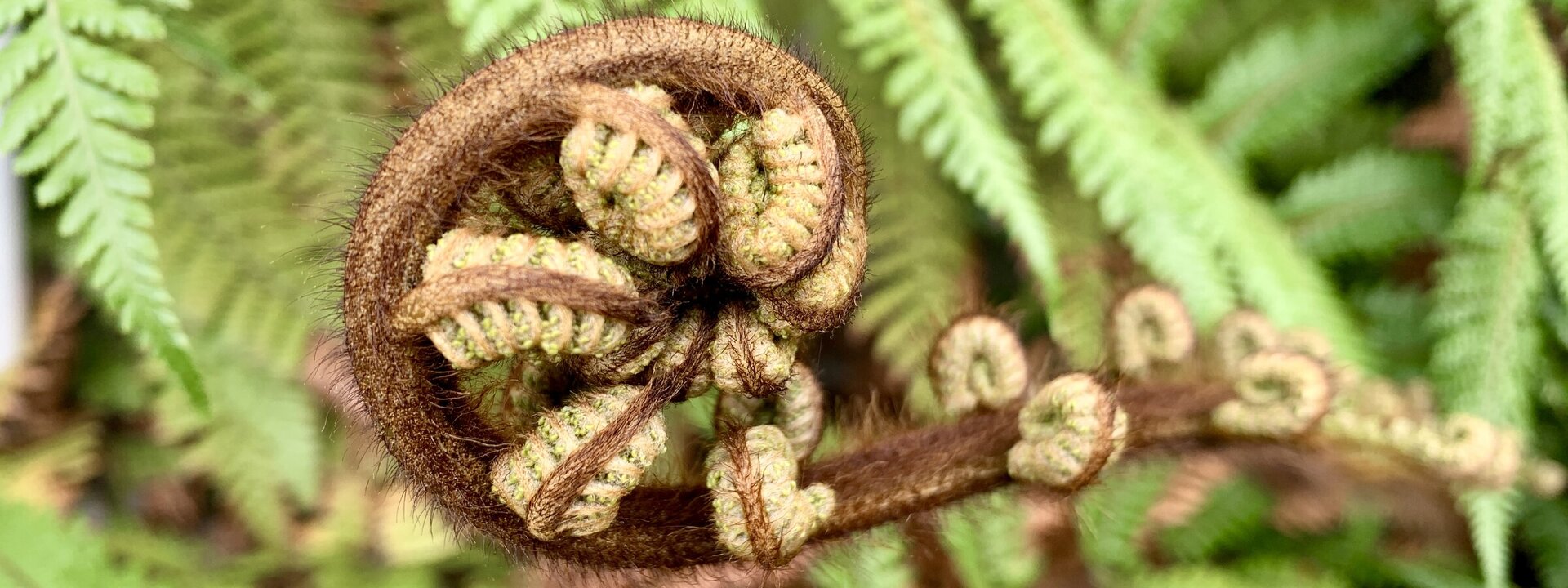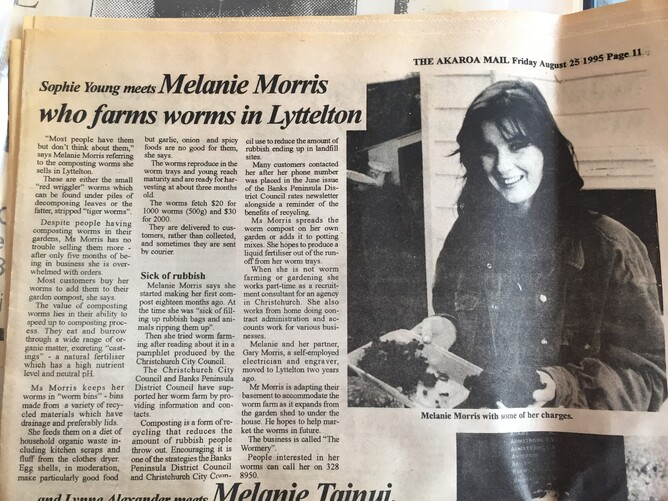From Steep Hills to Wormy Wonders: The Unlikely Start of Barrington on Green
Sometimes, the best adventures begin with a happy accident and a healthy dose of naivety. That's certainly how Barrington on Green, and my own deep dive into the world of sustainability, composting, and gardening, truly began. It was the mid-90s, and I'd just returned from the quintessential overseas experience, settling into a beautiful old cottage in Lyttelton. Our garden, bless its heart, was steep, full of clay soil and volcanic rock … somewhat challenging, but an ultimately gorgeous learning curve. I'd always been, shall we say, an "average" plant guardian at best, and container gardening was my only prior gardening experience. Yet, the sheer volume of what you could apparently grow in a confined space intrigued me.
Composting, however, remained my nemesis. I'd tried various methods, including the "three box system that required heavy lifting and turning and attracted rodents. My dad, ever the gardening sage, seemed to always have a great supply of compost and worms. I picked up a Christchurch City Council pamphlet on worm farming and home composting then reached out to order worms from a well-known worm farmer in Nelson (John Stemmer) . Soon after while at the Lava Bar (part of the iconic Volcano) in Lyttelton on a Saturday night I announced to the bar that I was now a worm farmer. As fate would have it, a journalist was there and ran a short story in the Akaroa Mail.
The Worm Tornado: From Article to Overnight Sensation
What happened next was utterly bonkers. After that initial article hit the small local paper, the phone calls and fax machines went absolutely wild! TV1 News, CTV News, TV3 News – they all came calling, filming for national prime time news. I still only had the initial order of worms, the poor things were carefully pulled out to show off on TV, with their ‘TV” dinners on show in the fridge. I had a worm farm in the shed (called the Worm Factory from Reln)
My fax machine went crazy with orders from all around the country. That, my friends, was the accidental kick-off to a truly accidental business.
The faxes and phone calls kept coming, and I was even getting mail from people wanting to order worms! The problem? I really didn't have any to sell. So, I had to order more worms from Nelson, and quickly learn the ropes of actually being a worm farmer. There was so much to learn in the beginning: What do they eat? What don't they eat? I can definitively tell you, they do not eat crayfish. It was a very smelly experience.
I also learned quickly that perhaps having the worm farms in my kitchen wasn't the most professional setup. At one point, I had two or three round worm farms, then a whole factory, and then worm beds ! The Reln round worm farms were made from recycled Australian ban notes. In fact, I still have one of the original farms today – the tap has been replaced a few times, and the legs too, but the core design really does last.
A Sustainable Passion Takes Root
Worm farming was a fantastic education. While working in a a recruitment agency simultaneously, I often spent late nights in the kitchen, headlamp on, trying to sort and weigh worm orders while figuring out what kind of newspaper they preferred and how moist to make it for transport. (This was before coloured newspaper, so it was much easier back then!) Despite a few disasters, including worms making grand escapes due to unfavorable living conditions, I persevered.
Eventually, I found Robbie from Central Wormworx Ltd in Cromwell and started ordering kilograms of worms at a time. Much easier to keep up the supply which then lead to the business scaling into retail, we had contracts with Portstone Garden Centre, Tera Viva and Oderings. This led to developing a system where takeaway containers could fit into a nice little shelving unit, perfect for selling 100-gram lots. I started selling worms and other worm-related goodies at garden centres and markets. I even began educating preschools and kindergartens about worms, giving countless worm talks to various organisations.
The business grew to the point where it was truly sustainable, and more importantly, incredibly enjoyable. I loved the mission, connecting with people through worm farming talks, and especially working with the incredible products the worms made: their castings and worm tea. To this day, I still find immense joy in the composting process, watching waste transform into beautiful, nutrient-rich soil.
Barrington on Green, in essence, was an accidental spark that ignited an entrepreneurial spirit within me, turning simple ideas into thriving businesses. It brought me immense joy, and I truly believe anyone can enjoy the benefits of a worm farm, whether it's in a backyard or on a balcony. We even embraced Bokashi, a complementary system for meat and oils (though my cats and dogs found it a little too interesting!). After ten fulfilling years, I successfully sold the business, and it's still going today. It's been one of the best things that has ever happened in my working career, teaching me so much about training people, public speaking, and the endless conversation points surrounding worms. It's been fantastic!
Photo: Akaroa Mail August 25 1995, after 5 months in the worm business.

